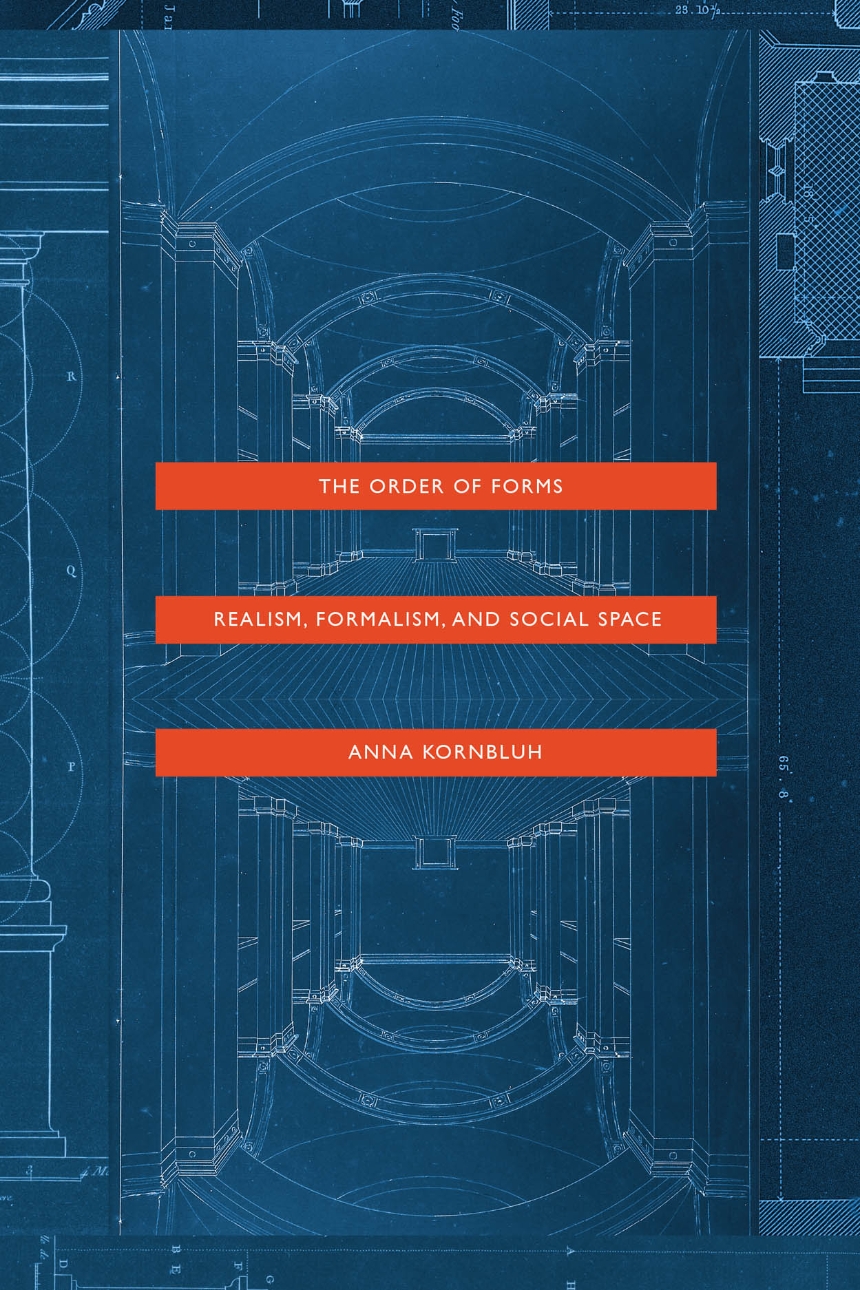The Order of Forms
Realism, Formalism, and Social Space
In literary studies today, debates about the purpose of literary criticism and about the place of formalism within it continue to simmer across periods and approaches. Anna Kornbluh contributes to—and substantially shifts—that conversation in The Order of Forms by offering an exciting new category, political formalism, which she articulates through the co-emergence of aesthetic and mathematical formalisms in the nineteenth century. Within this framework, criticism can be understood as more affirmative and constructive, articulating commitments to aesthetic expression and social collectivity.
Kornbluh offers a powerful argument that political formalism, by valuing forms of sociability like the city and the state in and of themselves, provides a better understanding of literary form and its political possibilities than approaches that view form as a constraint. To make this argument, she takes up the case of literary realism, showing how novels by Dickens, Brontë, Hardy, and Carroll engage mathematical formalism as part of their political imagining. Realism, she shows, is best understood as an exercise in social modeling—more like formalist mathematics than social documentation. By modeling society, the realist novel focuses on what it considers the most elementary features of social relations and generates unique political insights. Proposing both this new theory of realism and the idea of political formalism, this inspired, eye-opening book will have far-reaching implications in literary studies.
Kornbluh offers a powerful argument that political formalism, by valuing forms of sociability like the city and the state in and of themselves, provides a better understanding of literary form and its political possibilities than approaches that view form as a constraint. To make this argument, she takes up the case of literary realism, showing how novels by Dickens, Brontë, Hardy, and Carroll engage mathematical formalism as part of their political imagining. Realism, she shows, is best understood as an exercise in social modeling—more like formalist mathematics than social documentation. By modeling society, the realist novel focuses on what it considers the most elementary features of social relations and generates unique political insights. Proposing both this new theory of realism and the idea of political formalism, this inspired, eye-opening book will have far-reaching implications in literary studies.
240 pages | 6 halftones, 5 line drawings | 6 x 9 | © 2019
Literature and Literary Criticism: British and Irish Literature, General Criticism and Critical Theory
Reviews
Table of Contents
List of Figures
Acknowledgments
Introduction: The Order of Forms: Mathematic, Aesthetic, and Political Formalisms
1. The Realist Blueprint: For a Formalist Theory of Literary Realism
2. The Set Theory of Wuthering Heights: Realism, Antagonism, and the Infinities of Social Space
3. The Limits of Bleak House
4. Symbolic Logic on the Social Plane of Alice’s Adventures in Wonderland
5. Obscure Forms: The Social Geometry of Jude the Obscure
6. States of Psychoanalysis: Formalization and the Space of the Political
Conclusion: Sustaining Forms
Notes
Bibliography
Index
Acknowledgments
Introduction: The Order of Forms: Mathematic, Aesthetic, and Political Formalisms
1. The Realist Blueprint: For a Formalist Theory of Literary Realism
2. The Set Theory of Wuthering Heights: Realism, Antagonism, and the Infinities of Social Space
3. The Limits of Bleak House
4. Symbolic Logic on the Social Plane of Alice’s Adventures in Wonderland
5. Obscure Forms: The Social Geometry of Jude the Obscure
6. States of Psychoanalysis: Formalization and the Space of the Political
Conclusion: Sustaining Forms
Notes
Bibliography
Index
